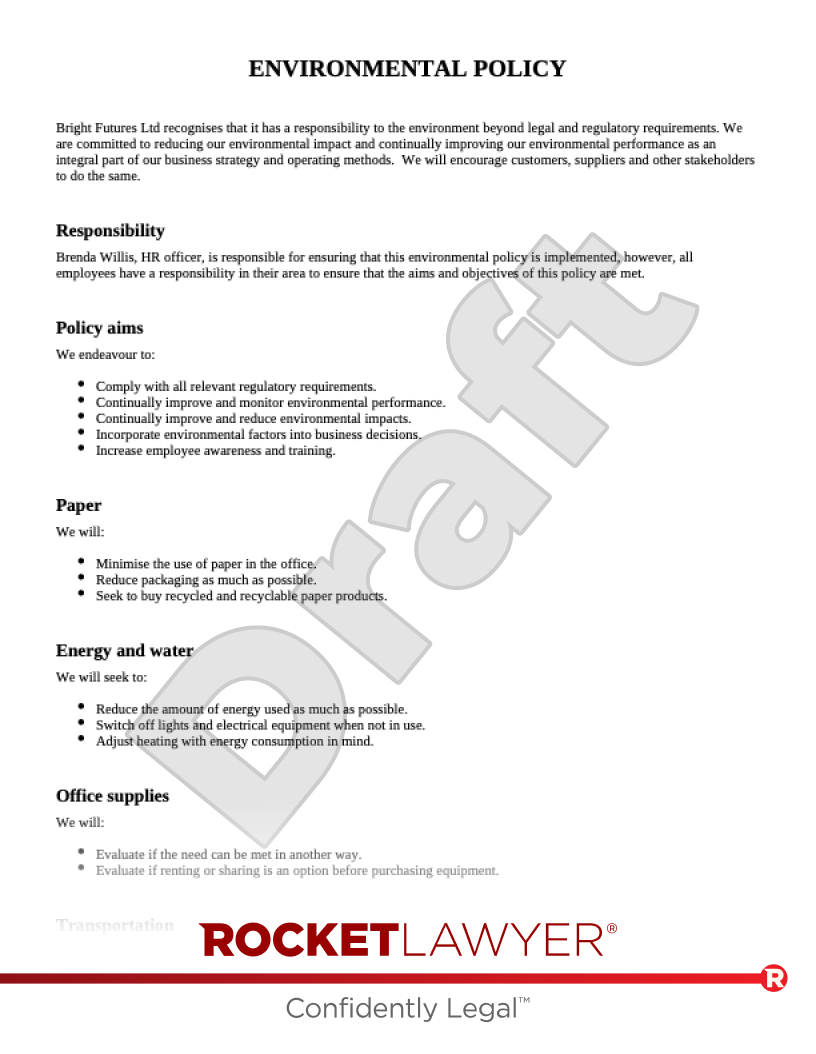Do I need an Environment Agency permit?
The Environment Agency is a public body that is sponsored by the UK government’s Department for Environment, Food and Rural Affairs (DEFRA). It is their responsibility to look after the protection and enhancement of the environment in England.
Amongst other roles, they regulate major industries and waste. They also work with businesses to manage the use of resources and how they are disposed of. The Environment Agency can be a major help in working out what you need to do and is also responsible for a number of the permits that a business might need.
If your business uses, recycles, treats, stores, or disposes of waste, then you may need to apply for an environmental permit. There are a variety of permits that you might require, including a regulatory position statement, an exemption, a standard rules permit, or a bespoke permit.
If you employ a waste carrier, they should have purchased an appropriate permit from the Environment Agency that allows them to transport your recyclables to other premises and dispose of them safely and responsibly. You should ask to see this when you employ their services and ensure that it is kept up to date to make sure that you are dealing with a reputable company.
Each type of waste stream has its own Standard Industrial Classification (SIC) and European Waste Catalogue (EXC) code. These are categorisations of your business’ activities and the nature of your waste. They detail how your waste should be disposed of, and your waste carrier should be able to advise you on this. They will also record and report how and where your business’ waste has been processed so that you know exactly what happens and that you are always working within the law.
Commercial recycling
There is a bigger drive than ever towards recycling, but many businesses still do not have a dedicated strategy for this. It is estimated that as much as 60% of the waste that goes to landfills could have been recycled, and every business will have at least one type of waste that they can recycle. Whether it is cardboard, paper, food, glass, metal, plastic or wood, there will be recycling options available to your business.
As a business, you have a legal responsibility under the Environmental Protection Act 1990 to ensure that your recyclable waste is sorted, stored, and disposed of in the correct way. This is known as your ‘duty of care’, and it requires you to:
-
separate your recycling into clearly labelled bins
-
store your recycling in appropriately sized containers that are kept dry and secure
-
pass your recycling on to a licensed waste carrier, and
-
complete a waste transfer note (WTN) whenever it is collected, to outline what the material is so that it can be processed correctly and safely
For more information, see the government’s guidance on the waste duty of care code of practice.
Breaking the rules
If it is suspected that you may have broken the rules regarding waste disposal, enforcement agencies have the power to question individuals under caution, and punishments can take the form of fines or even prison terms in some cases.
Several businesses have recently been found to be incorrectly shipping their plastic waste abroad to countries such as Turkey, Poland and the Netherlands. As a result, they have breached UK export regulations. As much as 79% of the UK’s waste is exported to other countries, but in doing so, it needs to be properly labelled and reported. If your provider does this, you should also consider what happens to your waste when it reaches these countries, as many simply dump or burn it rather than deal with it in the way that you might have hoped.
A crackdown on waste criminals is now also in full swing, which means that firms that move and trade waste are now subject to increased background checks. Waste will need to be managed by authorised persons only and in a safe manner. Mandatory digital waste tracking of the point at which waste is disposed of helps to enforce this. These measures have been brought in to try to detect and tackle illegal activity and waste crimes such as fly-tipping, dumping, illegal waste sites, and illegal waste exports.
What can be done to prevent breaking the rules?
You need to remember that your business’ waste is your business’ problem, even when you involve waste management companies and carriers. You need to ensure that you work with businesses that dispose of your waste responsibly. This includes making sure that your waste carrier is licensed and by doing your due diligence when choosing who to work with. It is important to keep in mind that ignorance is not a defence when it comes to waste disposal, so doing your homework is vital. You can protect yourself and your business by collecting evidence of all that you have done to comply and by keeping thorough records of each waste collection.
You should remember that it is your responsibility to make sure that you have taken all reasonable steps and precautions to confirm that your waste has been disposed of correctly. This means that there are no excuses for not conforming to the law, so make sure that your waste management strategy is treated with as much importance as anything else within your business.
Creating an Environmental policy can help you manage your business’ impact on the environment and ensure that you avoid environmentally harmful practices. For more information, read Environmental and sustainability policies and remember that you can Ask a lawyer if you have any questions.





